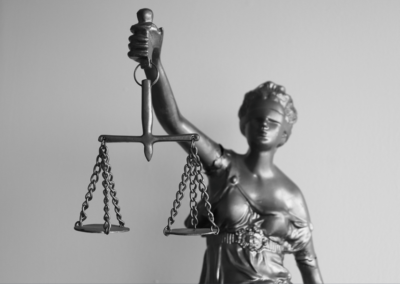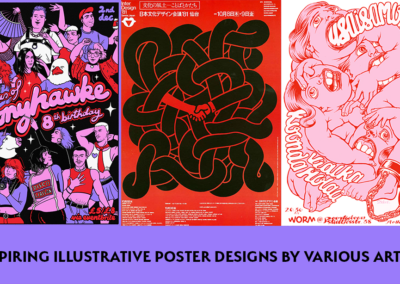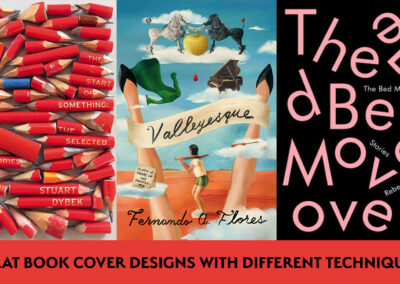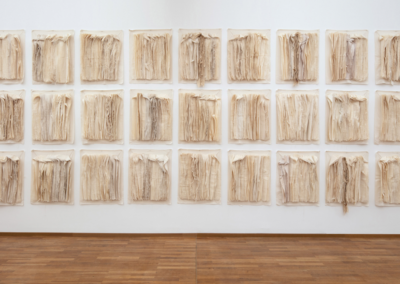Welcome to the fourth part of the Let’s Talk Art series. In this interview, we chat with Kevin McGivern from Scotland who has experience in illustration for movies, advertising, games, and more. Kevin’s digital art is created with the intention of preserving the look of traditional style paintings, giving his work a unique, visually appealing aesthetic.
In this interview, Kevin will be discussing the importance of traditional art, the many benefits of digital art and how both have helped to shape his career.
The aim of this series is to explore what it means to be an artist and to find out how artists have developed their craft over the years. Throughout the series, Jack Woodhams will be chatting with artists from countries all over the world, many of whom have worked for incredible brands such as Disney, Marvel, BBC, 20th Century Fox, Empire Magazine and more!
So, let´s talk art!
Your art style, although created digitally, has a beautiful traditional feel to it. How long did it take you to develop that style?
As with most artists developing a style is an ever ongoing process. I actually find it difficult to see a particular style in my own work. That being said, one thing I have made a conscious effort to do, is to give my digital work a traditional feel.
After discovering digital painting, I was obsessed with the ability to create photo-realistic art. I found it incredible that a program such as Photoshop gave us the tools to create paintings that were photorealistic. This soon wore off though as I realised the reason I got into art in the first place was my love of drawing, as opposed to the endless hours or rendering minute details.
These days, I use textured Photoshop brushes, many of which I have bought from Kyle T Webster’s brush packs, that I then tweak to suit my needs. However, the main thing that contributes to the traditional feel is my process is the same as it would be for an oil painting.
I start with a rough sketch, which I then refine to a more complete drawing. I then do a monochrome underpainting, distinguishing the light and shadows. Then comes the colour block in, then it’s details, details, details.

Oasis Art Work by Kevin McGivern
Is there anything you particularly prefer digital art over traditional art or vice versa?
I often find my traditional art gets a better response online than my digital work. I think non-artists can appreciate traditional art a bit more as they know it was created with a pencil, a charcoal stick or a paintbrush and they realise how difficult that is to do. Digital art is more confusing and there is a feeling that Photoshop has a magic button that does all the work for you. The Wacom Cintiq is a tool just the same as a pencil or paintbrush. If you can’t draw with a pencil, you won’t be able to draw with a stylus pen.
I enjoy doing traditional art. Once the piece is finished, you have a physical artifact to hold in your hands. You can create prints of digital work but the one-off nature of traditional work is special.
The obvious advantage of digital art over traditional is the versatility it provides. With the tools available now, thanks to companies like Wacom, almost any kind of 2D art can be created digitally. Also, the major advantage is time. No setting up the easel, paints, cleaning brushes, cleaning palette etc. Also if you need to make any changes, it is MUCH easier to do digitally than repainting a whole section of a painting.
You’ve started to experiment a lot recently with charcoal on paper, with beautiful results! What do you like about charcoal as a medium?
For me, charcoal is pretty much the most basic art medium out there. You are effectively drawing with burnt wood. It is also the perfect middle ground between drawing and painting. You can draw with a charcoal pencil, but you can also create loose “brush strokes” to give a more painterly feel. I actually got back into charcoal drawing (I hadn’t used charcoal since school) in order to help my digital work.
The process of charcoal drawing requires more concentration, as every stroke is important. There is no undo button and once you go to the deep blacks with charcoal, there is no way of erasing. So you have to be sure every stroke you make is correct.
I am always searching for a loose, painterly style in my digital work and I thought working in charcoal might get my hand used to work in that way again.

Kevin Mcgivern drawing with charcoal
You currently live in Glasgow, Scotland. Would you say where you live influences your art in any way?
Most of my influences come from the internet and so I feel my work would be the same no matter where I would live in the world.
However, having lived abroad for 8 years, I have become weirdly patriotic, so I would like to inject some “Scottishness” into my work at some point.
When did you first start noticing your interest for art and how long did it take you to find your preferred style and method?
I loved art all the way through school, however, thanks to some terrible advice from a guidance teacher who said “If you go to art school, all you will end up being is an art teacher or ‘someone like Picasso’ (snigger)”.
I only started drawing again 3-4 years ago and quickly made it my career. It was the best decision I ever made. I wake up every day and do what I love. No one can ask for any more than that.
You recently upgraded to a Wacom Cintiq 27QHD. How do you feel your upgrade has aided your work?
A couple of years back, I decided I wanted to upgrade from the Wacom Intuos 4 to a pen display so I could actually draw on the screen. At the time, I couldn’t afford a Cintiq and decided to go for a cheaper lesser known brand. After 18 months this tablet died, unrepairable. I decided this was the time to bite the bullet and go for the Cintiq.
The difference was night and day. Set up was a breeze, pen calibration is spot on and it is the closest thing to actually drawing on paper I can imagine. The slight tooth on the screen provides the perfect resistance to my pen, allowing comfortable pen control.
It now means I have no excuse, if I can’t make great art on this, I never will!

Kevin Mcgivern working on the Wacom Cintiq 27QHD
With the progression of digital art and the constant changes in the way we connect on social media, how has the art world changed for you over the past few years?
This is a difficult question for me to answer. My art career only really began 3-4 years ago. Until then I had studied Mechanical Engineering at university, worked as a Structural Engineer, moved to Greece and opened and ran a bar/restaurant for 6 years.
It was only after selling the bar and returning to Scotland that I decided to do what I love and try and make a career for myself in art. What I can say is that the influence of the internet and social media has given me the career I have today. Without it, I wouldn’t have known any of this was possible. It was only through seeing other artists’ work online that I thought “I could do that!”.
Do you feel the way that it’s changed has had a positive or negative impact on your career as an artist?
I can only see it as a positive thing. The internet has allowed more people to discover art, and see how a career can be forged in the art industry. It has allowed people who would otherwise be in jobs they hate, to aspire to be an artist. It has never been easier to get your work out there. 15 years ago, I could never have imagined painting a portrait of Ricky Gervais, tweeting it directly to him and him retweeting it to his millions of followers. It’s crazy!
There are endless ways to promote yourself online, which will differ for each person based on the industry they are trying to break into and their personality type.
Without the Internet and social media, my client base would be my local area. Now, the whole world is a potential client. I may be competing with more artists, but there is plenty of work out there for everyone if you are good enough.

“Denial” by Kevin McGivern
Is there a painting you’ve done recently which you’re particularly proud of or that means a lot to you?
I have a couple of recent pieces that I am happy with for different reasons. The first is a piece called “Denial”. This piece was painted as part of a personal project (that I have still to finish!). The series depicts the 5 stages of grief. This piece recently made it into the Spectrum annual for 2017. Getting into Spectrum takes most artists many years to achieve (if ever). And so to achieve this only 3 years after starting to draw again, is something I am very proud of.
The second piece is the painting I did for The Thing Art Book that will be released at San Diego Comic Con this year. The reason I like this piece is it’s the first piece where I changed up my process resulting in a style I am happy with (for now!).

Art Piece done for The Thing Art Book by Kevin McGivern
One of my favourite paintings of yours is Red and Snowflake. Can you tell us a little bit about the process behind this piece?
This piece was a commission for a book cover a couple of years ago for a client who was self-publishing their novel. It was the first book cover I had ever worked on and I was quite happy with how it turned out. Unlike the majority of artists, I enjoy painting horses, so this was a pleasure to work on.

“Red and Snowflake” by Kevin McGivern
Every artist has had at least one client nightmare. Have you had any particularly noteworthy or funny experiences over the past years?
I have actually been pretty lucky with clients. I have heard horror stories from other artists, but I can’t complain so far.
In saying that, I did have a terrible experience with an agent at one time. Not naming any names, but over the course of a year, they found me exactly 3 jobs, 2 of which took over 18 months to get paid! I have since decided that I will only ever work with an agent that is recommended by other artists.
Besides painting and art, what do you like to do in your spare time?
My biggest love is football. I actually played for Celtic youth team when I was younger and for a long time thought I was going to be a professional footballer. Much to the annoyance of my fiancée, I could watch any 2 teams kick a ball around a field.
I’m also a big movie fan and go to the cinema regularly. I also love how huge TV has become in the last few years. 10 years ago, the idea of the biggest movie stars in the world doing a TV series would be absurd. Now the standard of writing and production in television is so high a DVD box set is no effectively an 8-hour long movie!
I also love to travel and see the world. I have just returned from Stockholm (which was beautiful!) and in September I am going on a 2-week trip to Chicago, Boston, and New York.

Kevin Mcgivern´s Set-Up ( #WacomWorkspace)
Besides pop culture, you also illustrate a lot of sportsmen. How has sport influenced you throughout your career?
There are a lot of comparisons between sport and art. I often hear comments like “I wish I could draw like that” or “you have some talent!”. However, no one ever says this to athletes.
There is a general awareness that athletes train every day for years and years to get to the level they are at. It is exactly the same for art. In order to get better at art, you have to practice. It is as simple as that.
The trick, in both disciplines, is to enjoy the practice. Don’t get annoyed or anxious that you aren’t good enough; just know that today you are a little bit better than you were yesterday.
I have always drawn sportsmen. The first piece of art I ever sold was a pencil portrait of Cristiano Ronaldo. So I was delighted to get a call earlier this year from BT Sport, a huge sport TV Company in the UK. They were hiring a select group of artists to promote their Champions League coverage for this season. I often wanted to pinch myself that I was being paid to draw some of my sporting heroes, and then seeing my art on television!

Champions League Art Work by Kevin Mcgivern
Finally, where do you see your artistic career moving to in the next few years? And do you have any personal goals?
How long have you got?! I still feel I am relatively early in my art career and I have many things I still want to achieve. Getting into Spectrum this year was a big deal for me, but there are other annuals like 3×3, Communication Arts and American Illustration that I would love to be featured in.
In terms of client work, I have had the opportunity to work with some great clients already such as Marvel, Penguin Random House, and BT Sport, however, I do have some dream clients who I would love to work with one day such as Rolling Stone Magazine, Mondo, Tor Books, The New York Times – the list goes on. Gallery work is also something that interests me, in particular, the pop culture galleries like Gallery 1988 and Bottleneck Gallery.
I would also love to grow my business by selling directly to customers. One day, I hope to be at the stage where I could create my own work and sell it directly. I think I will always do commercial illustration but a balance between client work and personal work would be great.
That’s it for this installment of Let’s Talk Art, I hope you’ve enjoyed this interview with Kevin McGivern.
Be sure to follow Kevin across his social platforms to see more of his artwork. He often has some great prints up for sale on his store so be sure to check those out!
As always, follow Wacom so you don’t miss the latest Let’s Talk Art interview and I’ll catch you in the next one!
Follow Kevin:
Twitter – Instagram – Website – Store – PosterSpy






